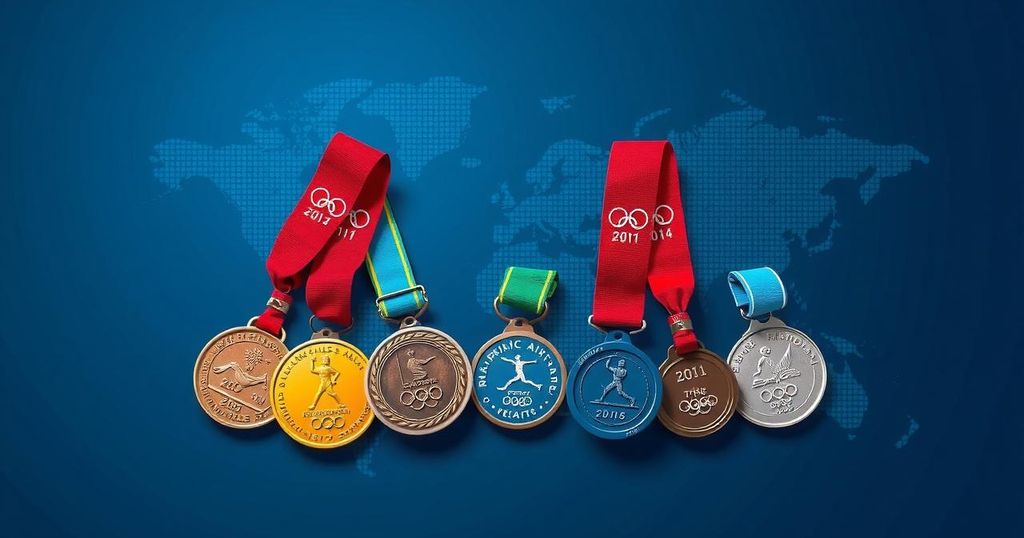Shifting Dominance: The Continent’s Success in the Olympics
Summary
Europe and the Americas have traditionally dominated the Olympic Games, but recent competitions have shown a strong performance by Asia, particularly China and Japan. The United States topped the medal table again in the Paris 2024 Olympics, marking a continued trend in Olympic successes. The historical context showcases Europe’s dominance since the Games began in 1896, yet the increasing competitiveness of Asia signifies an emerging shift.
The history of the Olympic Games reflects shifting patterns of dominance among the continents. For more than a century, Europe and the Americas have been the primary forces in Olympic success, with Asia making considerable strides in recent years. The latest Olympic Games in Paris 2024 concluded with the United States achieving the highest medal count, marking the fourth consecutive occasion in which the U.S. topped the medal table. China secured the second position, followed by Japan and Australia, with France being the leading European nation, finishing in fourth place. This trend illustrates a notable emergence of the U.S.-China rivalry, particularly evident in the most recent events such as Tokyo 2020 and Paris 2024. Historically, however, since the inception of the modern Olympic Games in 1896, Europe has maintained a dominant status, while the Americas have continued to secure the second slot. The increasing competitiveness of Asia highlights the evolving nature of the Olympic Games, prompting a reevaluation of traditional hierarchies of success among the continents.
The modern Olympic Games began in 1896 in Greece and have evolved significantly over the years, showcasing athletes from around the globe in a variety of sports. Initially dominated by European nations, the medal standings have often featured the United States and Europe as front-runners. The success of athletes from the Americas has also been notable. In contemporary settings, however, countries in Asia, specifically China and Japan, have begun to excel, indicating a shifting dynamic in Olympic performance. This evolution underscores both the global nature of the Games and the increasing competitiveness of nations that previously had lesser representation and success.
In conclusion, while Europe has historically been the most successful continent in the Olympics, recent events demonstrate significant achievements by the United States and China, with Asia’s growing influence reshaping the competitive landscape. This shift enhances the ongoing dialogue about the status of nations within the Olympic context and forecasts an exciting future for global competition.
Original Source: www.euronews.com








Post Comment